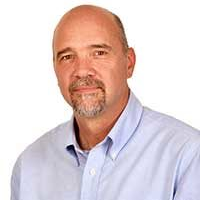
Families and Addiction – Part 3: Charlie’s Family – Part 2
Let’s continue to look at how a family can become impacted by addiction through the roles Charlie’s family has taken on.
The Controller
Let's consider Charlie’s father, Henry. Henry began to observe some of the alcoholic behaviors of his son. When Charlie became intoxicated, he wasn’t a pleasant person to be around.
Henry becomes angry when Charlie shows up to family events drunk because it is disruptive. So, he yells at Charlie and, one time, this became a physical a fight.
Henry is feeling ashamed of Charlie and afraid for him as well. Henry cares for Charlie, and he loves Charlie. If he didn’t, he wouldn’t be so frustrated and upset.
Now, Henry grew up with an alcoholic father, so he has some baggage that he is carrying with him as he considers Charlie’s drinking.
Henry decided he would never experience that in his lifetime, and therefore, he has abstained from alcohol for his entire life.
When he began to see Charlie drunk, he began to experience a lot of anger and frustration, and some of his past began to show. As a result, Henry kicked Charlie out of the house on two occasions.
We would call Henry a “controller,” he is trying to control Charlie because he is uncomfortable and because he loves him and wants to fix the problem.
The Enabler
Sarah is Charlie’s wife who is deeply upset that Charlie drinks as much as he does.
She is afraid of judgment. She fears judgment from society, and since Sarah is a religious person, she especially fears how Charlie’s drinking will impact their relationship with the church.
There is a lot of fear underneath Sarah to appear that everything is okay.
As a result of Sarah’s fears, she will do things for Charlie such as call into work when he is too hungover to go in as a way of protecting him. Doing things like this also makes her feel good about herself.
Sarah tries to shield the rest of the family from Charlie’s drinking, and she will avoid family functions and try to keep things on the “down-low.
Sarah would be called an “enabler.”
There is also some codependence involved in Sarah’s relationship with Charlie because she has begun to develop a sense of purpose in her life in protecting her family system from falling apart because of Charlie’s drinking.
It is important to her to keep things together, and she has begun to experience some sense of self-worth and self-value in being the person that holds all things together.
The Judgmental One

John is Charlie’s brother who is very angry with Charlie because he sees how his behaviors are affecting the family.
There was an incident at Christmas where Charlie showed up drunk. John confronted him, and they got into an ugly argument and had not spoken since that time. John is extremely resentful and now avoids family functions.
John is also very judgmental toward Charlie, and he doesn’t understand that Charlie is at the point where he couldn’t stop drinking even if he wanted to. He also doesn’t understand that Charlie is experiencing a lot of guilt and shame because he knows his behaviors are impacting everyone.
The Mascot
Ashley is one of Charlie's daughters, of which he has two.
Ashley is Charlie and Sara’s youngest and she has a way of making everybody laugh. She doesn't do very well in school because she's often clowning around, and occasionally, she will complain about stomach pain.
Many of you may have studied this topic about the roles children of substance users play to try to help the family system. Ashley is what we would call “the mascot.”
We can examine more of the roles family members may play when a loved one is struggling with addiction by looking at more of Charlie’s family.
The Hero
Bethany is the oldest daughter. She avoids being home as much as possible and never invites friends over for fear that her dad is going to be drunk and embarrass her.
 Bethany is on the honor roll, the lacrosse team, has the lead in the school play every year, and she sings in the church choir. So, as you can see, she is a bit of an over-achiever
Bethany is on the honor roll, the lacrosse team, has the lead in the school play every year, and she sings in the church choir. So, as you can see, she is a bit of an over-achiever
She tries to protect her younger sister and step in when her dad gets drunk and yells.
Bethany would be designated as “the hero.” Her role, as the hero, is to help the family system appear more normal by her behavior.
The thought process is that, if she can behave well enough, people won’t see that the family system is broken. She may also believe that, if she behaves “good enough,” dad will want to stop drinking.
The Enabler II
Elizabeth is Charlie's mother who tends to protect him from her husband, his father, Henry, by stepping in when arguments begin to happen
She tends to minimize the behaviors that she sees. In church, she pretends that nothing is wrong and cries when conflict occurs.
On two occasions, she secretly purchased alcohol for Charlie when he was suffering from withdrawal. Elizabeth, like Sara, is an enabler of Charlie.
In my work, I have found that mothers are especially susceptible to being enablers because they are so fixated on their child not experiencing suffering that they do things to help them to the detriment of the child.
This often begins when the child is young, with the mother or father protecting them from adverse consequences to the point that the individual child does not have the capacity to tolerate any distress whatsoever.
Elizabeth is one of those types of parents, and it is intolerable for her to see her child suffer in any way.
The Lost One
 Beatrice is Charlie’s other sister who has always looked up to him growing up. She is devastated watching Charlie self-destruct, and it is internally agonizing for her.
Beatrice is Charlie’s other sister who has always looked up to him growing up. She is devastated watching Charlie self-destruct, and it is internally agonizing for her.
Because of this, Beatrice starts showing signs of anxiety and depression. No one in the family is aware of this because she suffers quietly, isolating in another room when conflict happens and distracting herself with other things even though it is very distressing for her.
Beatrice is what we would consider a “lost person” in the family system.
Please See
Families and Addiction – Part 1: What is a Family System?
Families and Addiction – Part 2: Charlie’s Family – Part 1
Source:
Virtual Presentation by Steve Wright, LCPC, RDDP in the January 24, 2018 Addiction Hope Inaugural Online Conference & link to the press release at https://www.prnewswire.com/news-releases/eating-disorder-hope-offers-inaugural-online-conference-300550890.html
 About the Presenter:
About the Presenter:
Steve Wright, LCPC, RDDP is a therapist at Timberline Knolls Residential Treatment Center. He served for more than 25 years as a minister working in churches with youth, families, and as a senior pastor. As a counselor, he worked in residential treatment as a therapist supervisor, coordinator, and program director first in the substance use field and then in the eating disorder field.
 About the Transcript Editor: Margot Rittenhouse is a therapist who is passionate about providing mental health support to all in need and has worked with clients with substance abuse issues, eating disorders, domestic violence victims, and offenders, and severely mentally ill youth.
About the Transcript Editor: Margot Rittenhouse is a therapist who is passionate about providing mental health support to all in need and has worked with clients with substance abuse issues, eating disorders, domestic violence victims, and offenders, and severely mentally ill youth.
As a freelance writer for Eating Disorder and Addiction Hope and a mentor with MentorConnect, Margot is a passionate eating disorder advocate, committed to de-stigmatizing these illnesses while showing support for those struggling through mentoring, writing, and volunteering. Margot has a Master’s of Science in Clinical Mental Health Counseling from Johns Hopkins University.
The opinions and views of our guest contributors are shared to provide a broad perspective of addictions. These are not necessarily the views of Addiction Hope, but an effort to offer discussion of various issues by different concerned individuals.
We at Addiction Hope understand that addictions result from a combination of environmental and genetic factors. If you or a loved one are suffering from an addiction, please know that there is hope for you, and seek immediate professional help.
Published on June 22, 2018
Reviewed on June 22, 2018 by Jacquelyn Ekern, MS, LPC
Published on AddictionHope.com
